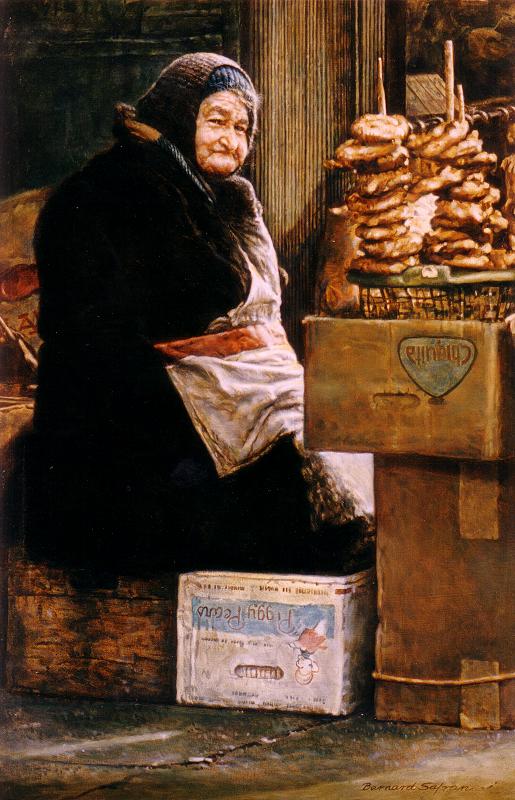A friend shared the following definition of chutzpah with me, and it came with an accompanying image and story, both of which drive home that definition. That story also teaches a profound insight about caring for people in need, why we do it, and what we can get out of it. But first, the definition of chutzpah:
Chutzpah is a Yiddish word meaning gall, brazen nerve, effrontery, sheer guts plus arrogance.
It’s Yiddish and, as Leo Rosten writes, no other word, and no other language, can do it justice. This example is better than a thousand words…

A little old lady sold pretzels on a street corner for 25 cents each.
Every day a young man would leave his office building at lunch time and as he passed the pretzel stand he would leave her a quarter, but never take a pretzel.
And this went on for more then 3 years.
The two of them never spoke.
One day as the young man passed the old lady’s stand and left his quarter as usual, the pretzel lady spoke to him.
Without blinking an eye she said:
“They’re 35 cents now.”
I love that story not only because it captures one definition of chutzpah, but because it embodies a deeply Jewish way of thinking about using money to care for people in need.
In Hebrew, the word for that is tzedakah, best translated as justice.
There are real gifts in thinking about care-taking primarily as an act of love, as indicated by the root meanings of the Latin and Greek words charity and philanthropy. But there is also something profound about understanding such care-taking as an act of justice, as a way of making the world the way it ought to be.
Ultimately this is a story about human dignity, one which offers a way of thinking about wealth in ways that are more sophisticated than socialism and more compassionate than unregulated markets. This story accepts the fact that while some may be rich and some may be poor, some more deserving and some less so, at the end of the day there is a measure of material wealth to which all human beings are entitled – it’s a matter of justice, tzedakah, of how the world should be.
